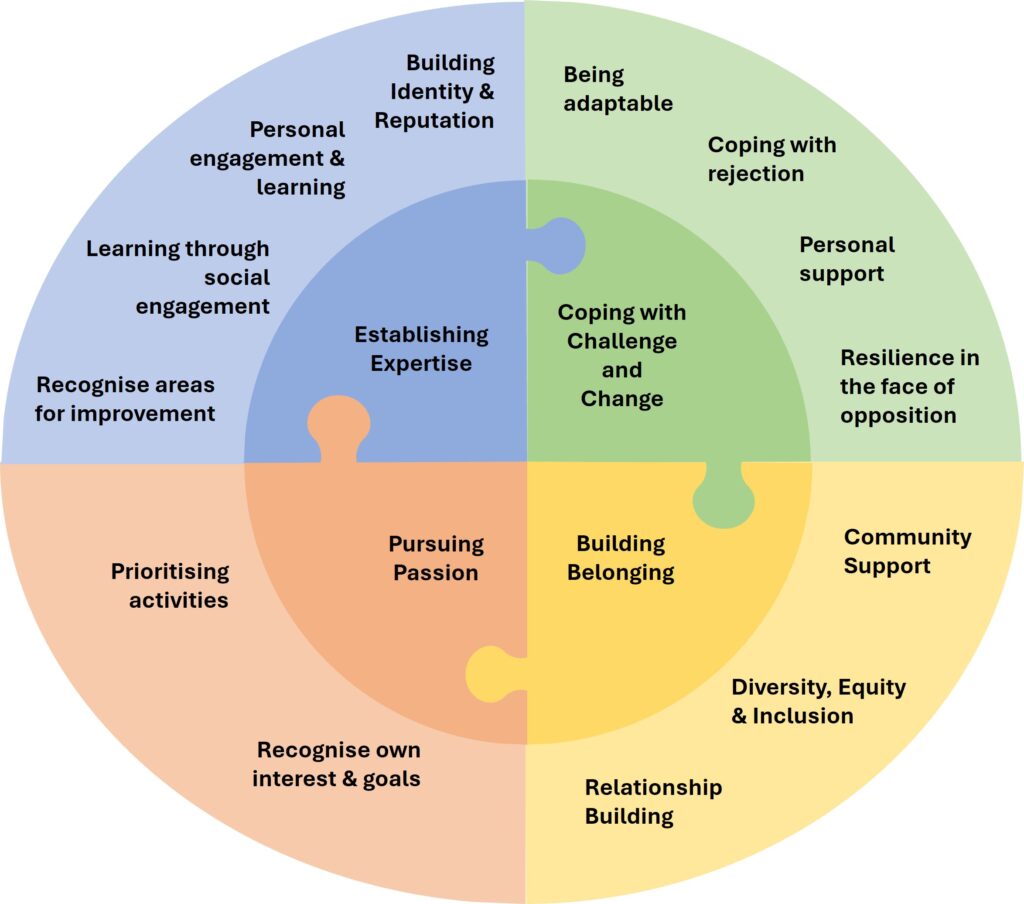 Yuveena Gopalan‘s doctoral research is studying how successful researchers learnt their craft. The first major publication from her PhD has just come out, distilling the insights from interviews into a conceptual framework.
Yuveena Gopalan‘s doctoral research is studying how successful researchers learnt their craft. The first major publication from her PhD has just come out, distilling the insights from interviews into a conceptual framework.
Strange as it may seem, relatively little is known about how academic researchers learn. Yes there are training courses to build specific skills, but all the evidence from workplace learning studies shows that this is not how professionals in other sectors learn. Co-supervised by David Boud and Simon Buckingham Shum, Yuveena Gopalan’s thesis is investigating how successful researchers, spanning different career stages, reflect on how they got better at research, and navigated the challenges of the academic research journey.
So we’re delighted to share this open access publication distilling the results of many hours of interviews with highly published researchers at early, mid- and senior career stages.
 Gopalan, Y., Buckingham Shum, S., & Boud, D. (2025). The professional learning of academic researchers through their career. Studies in Higher Education, Published online: 19 May 2025. https://doi.org/10.1080/03075079.2025.2505932
Gopalan, Y., Buckingham Shum, S., & Boud, D. (2025). The professional learning of academic researchers through their career. Studies in Higher Education, Published online: 19 May 2025. https://doi.org/10.1080/03075079.2025.2505932
Abstract: Professional development is necessary to sustain continual learning in any workforce, including academic researchers. However, researcher development strategies and support have been largely informed through institutional strategies, often conceived and deployed without the active participation of researchers. Several studies recognise the limitations of this approach and argue for the importance of understanding researchers’ perspectives on their learning. With an international focus, this paper examines ways in which leading researchers develop in becoming better researchers. Its distinctive contribution is to provide evidence of how academic researchers talk about their own learning, how it is conducted and what they have found effective in their careers. The paper reports the findings of a study that involved interviewing leading international researchers at three different career stages (early, mid and senior) in two fields. Four main themes were identified from the research: establishing expertise, pursuing passion, coping with challenge and change, and building belonging, with an overarching interrelationship between social and personal dimensions to learning. The findings are in line with workplace learning theories, and evidence: academic researchers, like other professions, learn predominantly through informal, unstructured and social means and are contingent on practice needs. While this alignment with our current understanding of professional learning might seem unremarkable, it has practical implications for supporting researcher development. Evidence-based approaches to examining researchers’ continued professional learning and development could promote researcher engagement and support institutional efforts to promote learning at both personal and community levels.